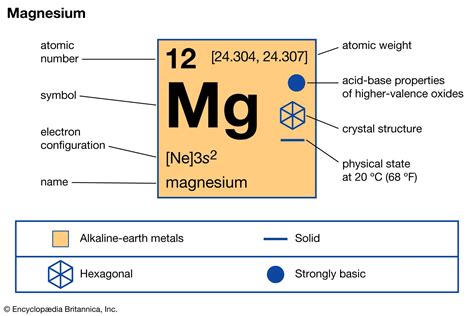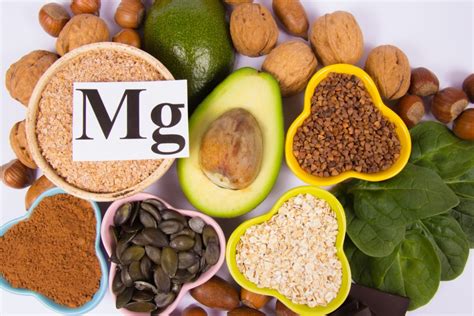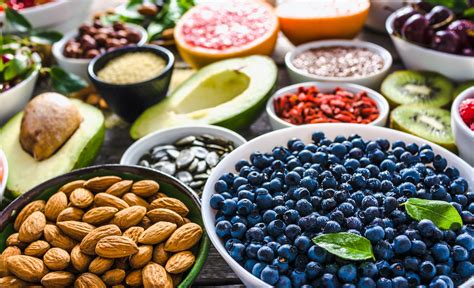The Powerhouse Mineral: Magnesium for Men’s Health
Magnesium is an essential mineral involved in over 300 biochemical reactions in the human body, playing a critical role in everything from nerve function and blood glucose control to protein synthesis and bone health. For men, its significance is particularly pronounced when it comes to supporting robust muscle function and maintaining consistent energy levels throughout the day.
Adequate magnesium intake is not just about preventing deficiencies; it’s about optimizing physiological processes that directly impact physical performance, recovery, and overall vitality. Understanding the optimal daily amount and where to find it in your diet can be a game-changer for men seeking to fuel their bodies effectively.

Recommended Daily Intake for Men
The recommended daily allowance (RDA) for magnesium varies slightly by age. For adult men aged 19-30 years, the RDA is generally 400 mg per day, while for men 31 years and older, it increases slightly to 420 mg per day. These recommendations are set by health organizations to ensure most individuals meet their nutritional needs and prevent deficiency.
However, individual needs can fluctuate based on factors like activity level, stress, and certain medical conditions. Athletes or men engaging in intense physical activity may require slightly more due to increased magnesium loss through sweat and higher demands for energy production and muscle repair.
Magnesium’s Role in Muscle Function
Magnesium is absolutely vital for proper muscle function. It acts as a natural calcium channel blocker, helping muscles relax after contraction. Without sufficient magnesium, muscles can remain contracted, leading to cramps, spasms, and general muscle fatigue. It also plays a key role in the synthesis of proteins, which are the building blocks of muscle tissue, and in maintaining electrolyte balance within muscle cells.
For men focused on strength training or athletic performance, adequate magnesium intake can contribute to improved muscle strength, reduced muscle soreness, and quicker recovery times, enabling more consistent and effective workouts.

Boosting Energy Production with Magnesium
Beyond muscle function, magnesium is central to the body’s energy production. It is a cofactor in the creation of adenosine triphosphate (ATP), often referred to as the body’s energy currency. ATP is synthesized in the mitochondria of cells, and magnesium is essential for its activation and efficient use. Every cell in your body relies on ATP for energy, meaning magnesium’s presence is fundamental to combatting fatigue and maintaining high energy levels.
A deficiency can lead to feelings of tiredness, weakness, and a general lack of stamina, even when sleep and other nutrients are sufficient. Ensuring optimal magnesium levels helps the body efficiently convert food into usable energy, supporting endurance and mental clarity throughout the day.
Top Food Sources of Magnesium
Fortunately, magnesium is abundant in a variety of delicious and healthy foods. Incorporating these into your daily diet is the best way to meet your optimal intake:
- Dark Leafy Greens: Spinach, kale, Swiss chard are excellent sources. A single cup of cooked spinach can provide nearly 40% of the daily value.
- Nuts and Seeds: Almonds, cashews, pumpkin seeds, chia seeds, and flaxseeds are packed with magnesium. Just an ounce of almonds contains 20% of the RDA.
- Legumes: Black beans, lentils, chickpeas, and soybeans are not only protein-rich but also great sources of magnesium.
- Whole Grains: Brown rice, whole wheat bread, and especially oats provide significant amounts of magnesium compared to refined grains.
- Avocado: This creamy fruit is not only a source of healthy fats but also provides a good amount of magnesium.
- Dark Chocolate: A delicious treat that’s surprisingly rich in magnesium, especially varieties with 70% or more cocoa solids.
- Fatty Fish: Fish like salmon and mackerel contribute to magnesium intake, alongside their omega-3 benefits.
- Bananas: While not as high as other sources, bananas offer a decent contribution along with potassium.

Signs of Deficiency and When to Consider Supplements
While a balanced diet is the primary way to obtain magnesium, many men still fall short of the recommended intake. Early signs of magnesium deficiency can be subtle, including fatigue, muscle cramps, weakness, and loss of appetite. More severe deficiencies can lead to numbness, tingling, seizures, personality changes, and abnormal heart rhythms.
If you suspect a deficiency or have conditions that increase your need for magnesium (e.g., digestive disorders, alcoholism, type 2 diabetes), consult a healthcare professional. They can recommend a blood test and advise on whether a magnesium supplement is necessary. Various forms of magnesium supplements exist, such as magnesium citrate, glycinate, or oxide, each with different absorption rates and potential benefits.

Conclusion: Fueling Your Body Naturally
For men aiming to optimize muscle function, boost energy levels, and support overall health, achieving the optimal daily intake of magnesium is paramount. By focusing on a diet rich in dark leafy greens, nuts, seeds, legumes, whole grains, and even a little dark chocolate, you can naturally fuel your body with this powerhouse mineral.
Prioritizing magnesium through wholesome food sources is a proactive step towards greater vitality, improved physical performance, and sustained energy, ensuring your body functions at its peak for years to come.





